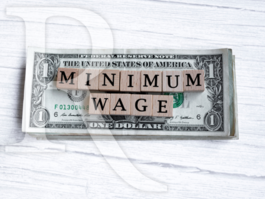Pro-Obama Media Always Shocked by Bad Economic News
A Commentary By Michael Barone
Unexpectedly!
As megablogger Glenn Reynolds, aka Instapundit, has noted with amusement, the word "unexpectedly" or variants thereon keep cropping up in mainstream media stories about the economy.
"New U.S. claims for unemployment benefits unexpectedly climbed," reported cnbc.com May 25.
"Personal consumption fell," Business Insider reported the same day, "when it was expected to rise."
"Durable goods declined 3.6 percent last month," Reuters reported May 25, "worse than economists' expectations."
"Previously owned home sales unexpectedly fall," headlined Bloomberg News May 19.
"U.S. home construction fell unexpectedly in April," wrote The Wall Street Journal May 18.
Those examples are all from the last two weeks. Reynolds has been linking to similar items since October 2009.
Mainstream media may finally be catching up. "The latest economic numbers have not been good," David Leonhardt wrote in the May 26 New York Times. "Another report showed that economic growth at the start of the year was no faster than the Commerce Department initially reported -- 'a real surprise,' said Ian Shepherdson of High Frequency Economics."
Which raises some questions. As Instapundit reader Gordon Stewart, quoted by Reynolds on May 17, put it: "How many times in a row can something happen unexpectedly before the experts start to, you know, expect it? At some point, shouldn't they be required to state the foundation for their expectations?"
One answer is that many in the mainstream media have been cheerleading for Barack Obama. They and he both naturally hope for a strong economic recovery. After all, Obama can't keep blaming the economic doldrums on George W. Bush forever.
I'm confident that any comparison of economic coverage in the Bush years and the coverage now would show far fewer variants of the word "unexpectedly" in stories suggesting economic doldrums.
It's obviously going to be hard to achieve the unacknowledged goal of many mainstream journalists -- the president's re-election -- if the economic slump continues. So they characterize economic setbacks as unexpected, with the implication that there's still every reason to believe that, in Herbert Hoover's phrase, prosperity is just around the corner.
A less cynical explanation is that many journalists really believe that the Obama administration's policies are likely to improve the economy. Certainly that has been the expectation as well as the hope of administration policymakers.
Obama's first Council of Economics Adviser Chairman Christina Romer, whose scholarly work is widely respected, famously predicted that the February 2009 stimulus package would hold unemployment below 8 percent. She undoubtedly believed that at the time; she is too smart to have made a prediction whose failure to come true would prove politically embarrassing.
But unemployment zoomed to 10 percent instead and is still at 9 percent. Political pundits sympathetic to the administration have been speculating whether the president can win re-election if it stays above the 8 percent mark it was never supposed to reach.
Administration economists are now making the point that it takes longer to recover from a recession caused by a financial crisis than from a recession that occurs in the more or less ordinary operation of the business cycle. There's some basis in history for this claim.
But it come a little late in the game. Obama and his policymakers told the country that we would recover from the deep recession by vastly increasing government spending and borrowing. We did that with the stimulus package, with the budget passed in 2009 back when congressional Democrats actually voted on budgets, and with the vast increases scheduled to come (despite the administration's gaming of the Congressional Budget Office scoring process) from Obamacare.
All of this has inspired something like a hiring strike among entrepreneurs and small businessmen. Employers aren't creating any more new jobs than they were during the darkest days of the recession; unemployment has dropped slowly because they just aren't laying off as many employees as they did then.
In the meantime many potential job seekers have left the labor market. If they re-enter and look for jobs, the unemployment rate will stay steady or ebb only slowly.
We tend to hire presidents who we think can foresee the future effect of their policies. No one does so perfectly. But if the best sympathetic observers can say about the results is that they are "unexpected," voters may decide someone else can do better.
Michael Barone, senior political analyst for The Washington Examiner (www.washingtonexaminer.com), is a resident fellow at the American Enterprise Institute, a Fox News Channel contributor and a co-author of The Almanac of American Politics.
COPYRIGHT 2011 THE WASHINGTON EXAMINER
DISTRIBUTED BY CREATORS.COM
See Other Political Commentaries.
See Other Commentaries by Michael Barone.
Rasmussen Reports is a media company specializing in the collection, publication and distribution of public opinion information.
We conduct public opinion polls on a variety of topics to inform our audience on events in the news and other topics of interest. To ensure editorial control and independence, we pay for the polls ourselves and generate revenue through the sale of subscriptions, sponsorships, and advertising. Nightly polling on politics, business and lifestyle topics provides the content to update the Rasmussen Reports web site many times each day. If it's in the news, it's in our polls. Additionally, the data drives a daily update newsletter and various media outlets across the country.
Some information, including the Rasmussen Reports daily Presidential Tracking Poll and commentaries are available for free to the general public. Subscriptions are available for $4.95 a month or 34.95 a year that provide subscribers with exclusive access to more than 20 stories per week on upcoming elections, consumer confidence, and issues that affect us all. For those who are really into the numbers, Platinum Members can review demographic crosstabs and a full history of our data.
To learn more about our methodology, click here.



